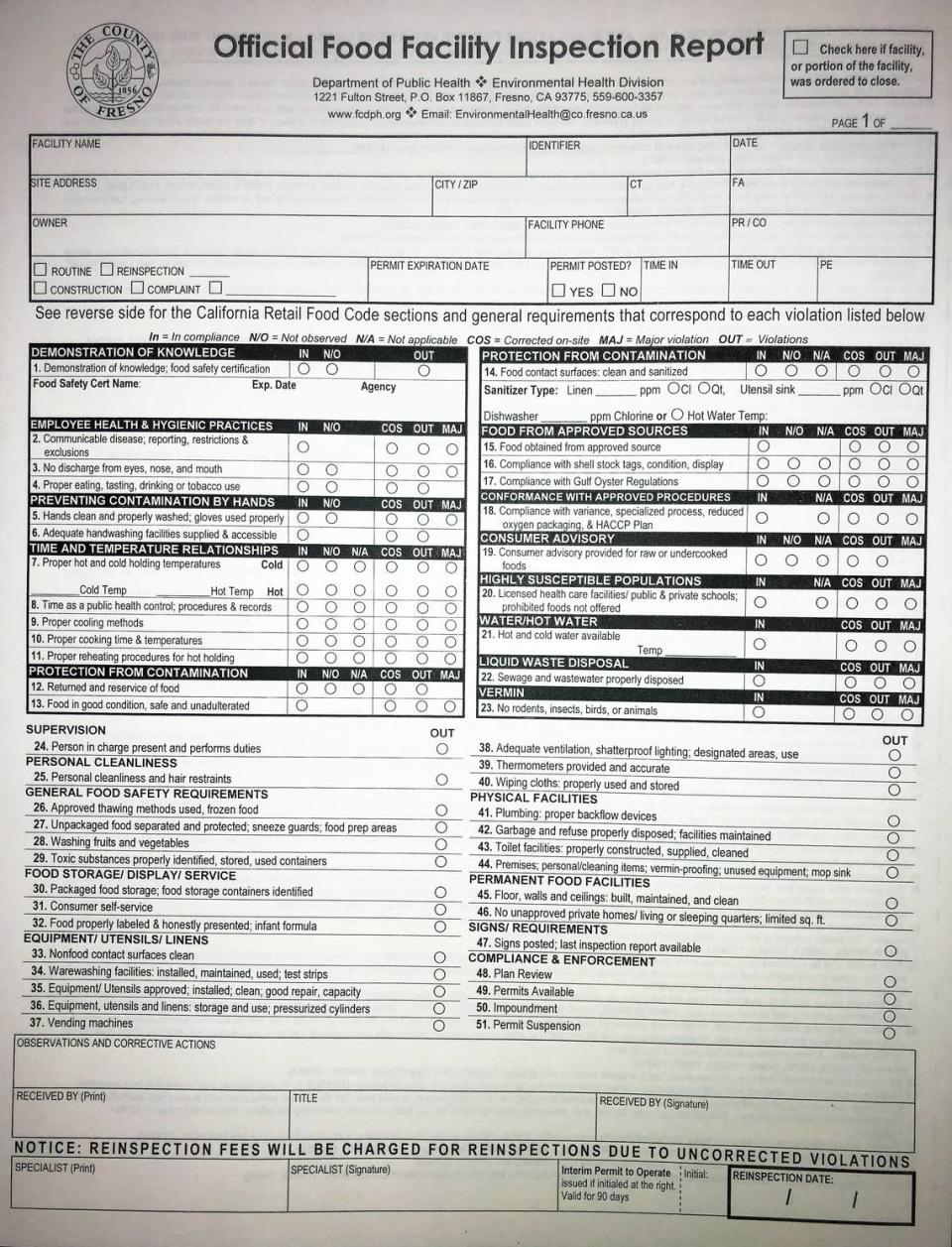Vermin among causes of October restaurant closures in Fresno. Who failed health inspections?
Evidence of vermin infestation, including an abundance of rodent droppings, were enough to prompt the temporary closure of a central Fresno market in October by a Fresno County health inspector.
And a lack of hot water closed a restaurant for several hours until a plumber could be summoned to repair the water heater.
The two facility closures for October come after no food restaurants or markets were found in violation of food safety regulations in September, the Fresno County Department of Public Health reported to The Fresno Bee.
The Freshco Food Center, a market at First Street and Olive Avenue in central Fresno, was closed after an Oct. 27 inspection in which “excessive rodent droppings throughout the facility” were discovered. An inspector from the county’s Environmental Health Division also observed bags of peanuts that had been chewed.
The market was ordered to throw away the chewed bags of peanuts and to deep clean the entire store and call for a pest control service to get rid of rodents.
The site was allowed to reopen following a reinspection the following day.
About 1.5 miles to the west, El Patio Mexican Restaurant on Olive Avenue between Echo and Roosevelt avenues was closed for several hours on Oct. 19 because of a lack of hot water at the hand-washing sink used by employees and at a three-compartment sink in the kitchen.
An inspector also found that temperature in a kitchen prep line storage unit was at 51 degrees, higher than the 41 degrees mandated by food safety regulations to inhibit bacterial growth on cold foods. Food in the prep line unit was moved into an upright refrigerator until the prep unit could be serviced.
A reinspection a few hours later found the violations corrected, and the restaurant was allowed to reopen.
Lack of hot water is one of the most common violations inspectors from the Department of Public Health find when they make their routine visits. Hot water at a temperature of at least 120 degrees is considered important by inspectors for safely washing pots, pans, dishes and glasses, as well as for employees to wash their hands.
Insect or vermin infestations are another type of violation that can result in immediate closure of restaurants or food businesses when they are observed by health inspectors.
Among other serious concerns for food safety are refrigerators that don’t keep food cold enough or steam tables that don’t keep food hot enough to inhibit bacterial growth, or clogged sinks or drains that cause contaminated water to back up into kitchens.
In most instances, if an inspector finds a problem, it’s something that can be fixed on the spot – issues such as having enough bleach or sanitizer in the water used to wipe down food-preparation areas, putting lids back onto containers in walk-in refrigerators, replenishing soap, paper towels and toilet paper in the restrooms, or reminding employees to wash their hands and wear gloves and hairnets.
When inspectors visit a restaurant or other food service business, there is a lengthy and detailed list of more than 50 things that draw their scrutiny. They include:
Whether the manager and all employees have the required food safety or food-handling certificates.
Hygiene of individual employees.
Ways to keep cold food at or below 41 degrees and hot food above 135 degrees.
Use of proper sterilization for counters, tables, utensils and cookware.
Overall cleanliness.
Proper drainage of sinks and floor drains.
Restrooms stocked with supplies.
Whether the business has the proper license or permit.


